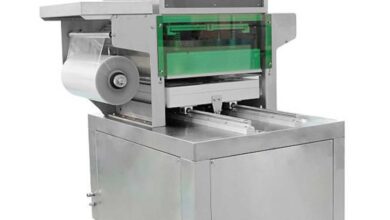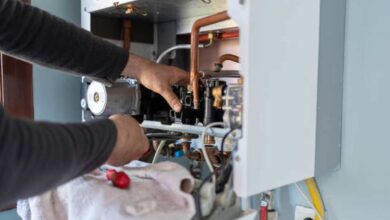
Hybrid Solar Inverters are advanced devices that combine the functions of a traditional solar inverter with the added capability to manage energy from multiple sources, including solar panels, battery storage, and the electrical grid. Unlike standard inverters, hybrid inverters allow for the seamless integration of energy storage, enabling users to store excess solar power for use during non-sunny periods or power outages.
The importance of hybrid inverters lies in their ability to optimize energy usage, increase energy independence, and provide flexibility in managing power needs. They are essential for modern energy solutions, offering enhanced efficiency and adaptability in an evolving energy landscape.
What Are Hybrid Solar Inverters?
Hybrid Solar Inverters are sophisticated devices that not only convert the direct current (DC) generated by solar panels into alternating current (AC) for household use but also manage energy flow between the solar panels, battery storage, and the grid. Unlike traditional inverters, which only handle the conversion of solar energy to AC, hybrid inverters have the added functionality of integrating energy storage systems. This means they can store excess solar power in batteries for later use, providing energy during non-sunny periods or when the grid is down.
Traditional inverters typically send excess energy back to the grid, whereas hybrid inverters give users the flexibility to store or use that energy as needed. This capability makes hybrid inverters more versatile, allowing for greater energy independence, improved efficiency, and the ability to optimize power usage according to specific energy demands, making them a superior choice for modern solar energy systems.
How Hybrid Solar Inverters Work
Hybrid Solar Inverters seamlessly integrate solar panels and battery storage to optimize energy use. During the day, the inverter converts the DC power generated by the solar panels into AC power for household use. Any excess energy is either stored in the battery or sent back to the grid, depending on the system setup. When solar production is low or at night, the stored energy in the battery can be used to power the home, reducing reliance on the grid and lowering electricity costs.
These inverters also maintain a connection to the grid, allowing for the export of surplus energy and ensuring continuous power supply. In the event of a grid outage, hybrid inverters can automatically switch to battery power, providing backup electricity to essential loads. This capability ensures that critical devices and appliances remain operational during power outages, enhancing energy security and reliability for the user.
Advantages of Hybrid Solar Inverters
Hybrid solar inverters offer several key advantages that enhance energy efficiency, provide flexibility in energy management, and deliver cost savings:
Enhanced Energy Efficiency
Hybrid solar inverters are designed with high efficiency ratings, often exceeding 90%, which means they convert a significant portion of solar energy into usable power. By optimizing the flow of energy between solar panels, batteries, and the grid, these inverters minimize energy loss and ensure that the maximum amount of generated solar power is utilized, enhancing overall energy efficiency.
Flexibility in Energy Management
One of the key advantages of hybrid inverters is their ability to seamlessly switch between different power sources—solar, battery, and grid—based on real-time energy demand. This flexibility allows users to prioritize solar energy during the day, utilize stored battery power during peak demand or outages, and fall back on the grid only when necessary, leading to a more balanced and reliable energy management system.
Cost Savings
Hybrid inverters contribute to significant cost savings by reducing dependency on grid electricity. By storing excess solar energy and using it during high-tariff periods, homeowners can lower their electricity bills. Additionally, with options like net metering, where surplus energy is sold back to the grid, hybrid inverters can even generate financial returns, making them a smart investment in the long run.
Factors to Consider When Choosing a Hybrid Inverter
When choosing a hybrid inverter, several critical factors must be considered to ensure optimal performance and compatibility with your energy needs.
Power Capacity
The power capacity of a hybrid inverter is vital for matching it with your energy consumption requirements. It’s essential to calculate your total energy usage and ensure the inverter can handle peak loads. A properly sized inverter will efficiently manage the power generated by your solar panels and supply sufficient energy during high-demand periods, preventing overload and ensuring reliable performance.
Battery Compatibility
Compatibility with various battery types is another crucial consideration. Different hybrid inverters support specific battery technologies, such as lithium-ion or lead-acid. Ensuring that the inverter is compatible with your chosen battery system is essential for seamless integration and efficient energy storage and usage.
Efficiency Ratings
Selecting a hybrid inverter with high efficiency ratings (above 95%) is critical for minimizing energy loss during the conversion process. Higher efficiency translates to better overall system performance, maximizing the amount of solar energy converted into usable electricity and reducing operational costs.
Additional Features
Consider additional features such as built-in monitoring systems, smart grid compatibility, and advanced safety mechanisms. These features enhance the functionality of your solar power system by allowing real-time performance tracking, facilitating problem identification, and optimizing energy management.
Future Trends in Hybrid Solar Inverters
Future trends in hybrid solar inverters are poised to drive significant advancements in efficiency, flexibility, and integration with emerging technologies:
Technological Innovations
Ongoing innovations in battery technology are expected to enhance the performance and cost-effectiveness of hybrid inverters. The development of higher energy density batteries, such as solid-state and lithium-metal, will enable more compact and efficient energy storage solutions. Advancements in inverter efficiency, through the use of wide-bandgap semiconductors like silicon carbide (SiC) and gallium nitride (GaN), will further minimize conversion losses and optimize energy usage.
Emerging Market Trends
The rise of smart grid technologies is expected to revolutionize the integration of hybrid inverters into the broader energy ecosystem. As smart grids become more prevalent, hybrid inverters will play a crucial role in facilitating two-way communication and energy flow between homes, businesses, and the grid. Additionally, the concept of “second-life” batteries, repurposing electric vehicle batteries for stationary storage, will become more widespread, reducing costs and promoting sustainability.
These technological advancements and emerging market trends will shape the future of hybrid solar inverters, making them increasingly efficient, flexible, and integrated with smart grid technologies. As the adoption of renewable energy continues to grow, hybrid inverters will be at the forefront of enabling a more resilient, sustainable, and cost-effective energy future.
Conclusion
Hybrid solar inverters are essential for modern energy systems, offering enhanced efficiency, flexibility in energy management, and significant cost savings. By integrating solar panels, battery storage, and grid connectivity, they optimize energy usage, increase energy independence, and provide reliable backup power, making them a smart, future-proof investment.







